Literature
This literature unit for grades K-1, organized around the study of figurative language, explores the idea that language can change the way we think about the world by creating new images and connections in our minds. The unit uses poetry and picture books as the basis for analyzing different types of figurative language, including simile, metaphor, and personification, and gives opportunities for students to create their own literary images. In addition, the unit introduces students to persuasive writing and to advanced word study, as well as providing an opportunity for students to explore how language changes over time in their families and their culture.
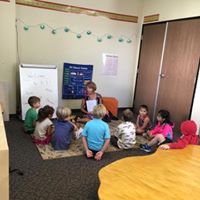
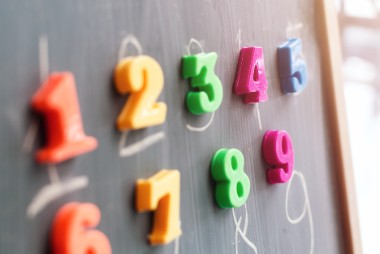
Mathematics
The mathematics unit for high-ability learners in grades K–1 focusing on concepts related to linear measurement, the creativity elements of fluency and flexibility, and the overarching, interdisciplinary concept of models. The unit consists of 13 lessons centered on the idea of designing a community pool. Students examine the question of why we measure, the importance of accuracy in measurement, and the various units and tools of measurement.
Science
Survive and Thrive is a life science unit that provides students in grades K–1 an opportunity to study animals, their characteristics, and their natural environments. The overarching concept of change guides students as they use webcams to distinguish the features of animals, determine their basic needs to survive, and observe animals in their habitats.
How the Sun Makes Our Day is an Earth and space science unit that engages students in grades K–1 in investigations and observations about the sun as a source of light and energy, the nature of shadows, man-made sources of energy, and the need for humans to conserve natural resources.
Water Works engages students in grades K–1 in scientific investigation as they closely observe and experiment with water. Students are transformed into scientists who notice, react to, reflect on, and discover more about force and change.
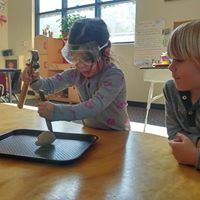

Social and Emotional
TOOLBOX™ is a Kindergarten through 6th grade program that supports children in understanding and managing their own emotional, social, and academic success. The foundation of TOOLBOX is 12 human capacities that reside within all of us. Through its simple and profound metaphor of Tools, TOOLBOX brings forward a set of skills and practices that help students access their own inner resilience at any time, in any context.
Children learn 12 simple yet powerful Tools. With practice, these Tools become valuable personal skills: self-awareness, self-management, and relationship-building which, in turn, foster responsible decision-making. Because the techniques are simple and the language is shared, children adopt the Tools and master them quickly. TOOLBOX begins with a teacher providing instruction on how to use the Tools. Through modeling and daily classroom practices, the teacher subsequently supports his/her students to use the Tools to build self-knowledge and self-trust. Schools note rapid improvements in communication, civility, and conflict resolution in the classroom, on the playground, and across the entire school community. Providing parents and caregivers with the Tools and information on how to incorporate the practices into the home setting allows for continuity and reinforcement of skills for students.
Foreign Language
At Oak Crest Academy, we recognize that the ability to speak more than one language considerably heightens one’s ability to learn, lead, and love. Every day, our nurturing educators teach grade-level curriculum in Mandarin and English, to children who are as diverse as they are curious about the physical world they live in.
Foreign Language involves the instruction of academic subject areas through a target language, such as Mandarin, for at least 40% of the school day, and English for the other part of the day. Foreign Language teachers speak only the target language and use a variety of techniques to ensure that the students understand the concepts and directions. In K/1 our students are exposed to Mandarin in language class, as well as other classes throughout the day.

Physical Education
Daily activity and nutritional choices are central to balanced, healthy lives. Not only do students have formal PE classes twice a week, teachers incorporate movement into their lessons.
History
In history/social studies learn about each other's personal preferences, family traditions, holiday celebrations, and family structures before learning about the larger world around us. The emphasis is on the immediate world the children live in. They engage in many games, story reading and puppet show activities to develop a sense of community and to help children establish a sense of place, which is a critical development before learning about the larger community that surrounds us.
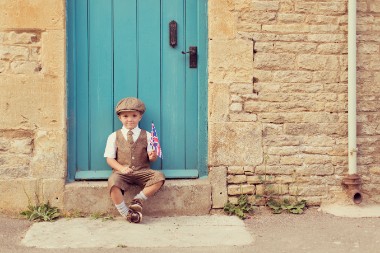
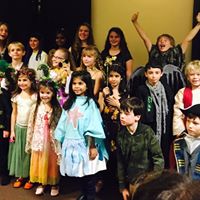
Project Based/Co-Curricular
During this time, classes are focused on class-wide or individual projects as well as offering co-curricular options like computer programming, arts, theater, music, Odyssey of the Mind, gardening, cooking, study hall and more.
*Please note that units fluctuate each year and every unit is not taught each year.
Is a Gifted Program Right For Your Child?
Contact Us Today to Take the Gifted Child School Readiness Quiz
Identify goals, strengths and important facts about gifted child education so you can make an informed decision for your family. Contact Us Today.
Kinder/1 Daily Schedule
8:30-9:00 AM
Morning Connection/Social & Emotional Learning
9:00-9:30 AM
Math
9:30-10:00 AM
ELA/Social Studies
10:00-10:15 AM
Break
10:15-10:45 AM
Science/Foreign Lang Rotation
10:45-11:15 AM
Brain Games/Movement
11:30-12:00 PM
Lunch
12:00 PM
Dismissal of 1/2 Day K
12:00-12:30 PM
Indoor Explore
12:30-3:00 PM
Co-Curricular Rotation




